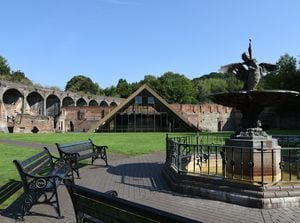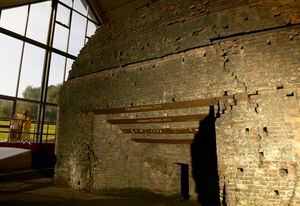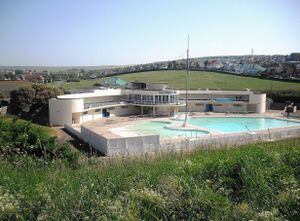Abraham Darby's Coalbrookdale furnace makes top 100 of England's historic sites
Abraham Darby's furnace at Coalbrookdale which was at the epicentre of the beginnings of the Industrial Revolution is highlighted as one of 100 key places in English history in a new book.

The furnace rubs shoulders with places ranging from Bletchley Park, home of Britain's codebreaking operation during the war, to the art deco Saltdean lido in Brighton and Shakespeare's birthplace in Stratford in the selection for Philip Wilkinson's A History of England in 100 Places.
Wilkinson, who has written more than 40 books, says the way Darby changed the method by which iron was produced in the early 18th century was to transform British industry.

The furnace, he says, became the heart of a substantial local iron industry, and in the 19th century iron was in even greater demand.
"The metal was central to the Industrial Revolution in Britain, and the development that made possible iron production on a large scale happened in the Severn Valley at Coalbrookdale, where the Old Furnace is one of its most remarkable monuments," adds Wilkinson.

Among those perhaps more unexpected among Wilkinson's choices are the brutalist Park Hill flats development in Sheffield. Despite its uncompromising architecture, he says that its style, its use of a sloping site, and its thoughtful provision for a true community, were celebrated widely when the estate was completed in 1961.
However, it later deteriorated and many flats became empty. Yet in 1998 it became a listed building and he says that there is a plan to have the entire estate renovated by 2022.

Another making the cut is Bristol bus station, which takes its place in social history following a bus boycott in 1963 after a teenager who applied for a job with Bristol Omnibus Company was turned down because he was black. The campaign paved the way for national change and for laws barring racial discrimination.
A plaque was unveiled at the bus station earlier this year showing the leading campaigners and commemorating the event.
A History of England in 100 Places is published by Historic England and costs £20.





